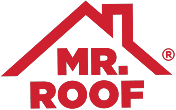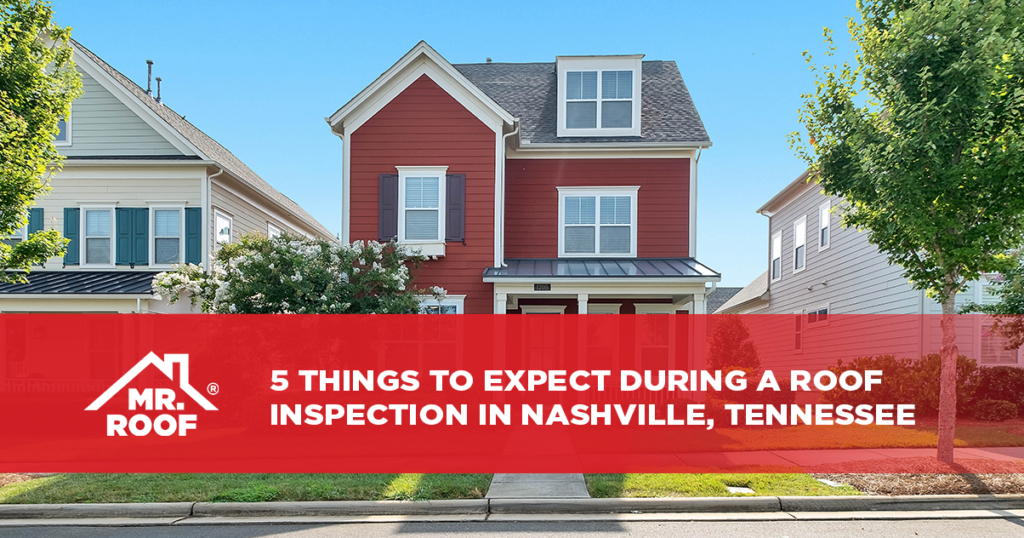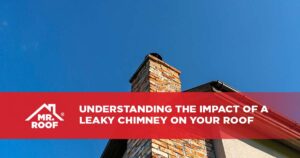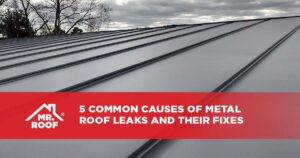Regular roof inspections are an important part of maintaining your home in Nashville, Tennessee. Homeowners should inspect their roofs from the ground, keep an eye out for any obvious damages, and be aware of any signs inside the house that might indicate a roof problem, such as water spots on the ceiling.
A professional roofing inspector will know how to complete a thorough inspection, but it is helpful for homeowners to know what to expect during the process, which is usually broken up into four parts: structural inspection, material inspection, workmanship inspection, and interior inspection. Before the inspector arrives, however, you’ll also want to do some things to prepare beforehand.
1. Homeowner Preparation
Prior to scheduling a roof inspection, it is helpful if the homeowner can prepare their roof for the inspector. First, do an inspection yourself. Note any damages that you can point out to the inspector so that they can more closely investigate when they arrive. Clean up any debris you are safely able to remove, and be prepared to answer questions about your roof. An inspector may climb onto your roof during the inspection or use a drone to capture images in real-time.
2. Structural inspection
The structural inspection will involve checking the roof for unevenness and signs of sagging. The structure and condition of the chimney, venting, soffit, fascia, and gutter system will also be examined. Inspectors will be on the lookout for crumbling grout, cracks, and gutter cleanliness and integrity. Checking the gutters for any shingle granules can also indicate whether a closer look needs to be taken during the material inspection.
3. Material inspection
During the material inspection, the inspector will look at your roofing material, which – if you are living in the Nashville area – is most likely shingles. Damage to shingles can be obvious if the granules have been rubbed off, exposing the black material underneath the granules. The inspector will also check for staining, moss, or missing materials as they complete the material inspection. Seals and rubber boots will be checked for signs of deterioration or gaps that could allow water to penetrate your roof.
4. Workmanship inspection
The inspection will also consist of an examination of the workmanship used when your roof was built. Incorrect or lazy installation techniques can impact the lifespan of your roof, so the inspector will assess the workmanship and note any areas that could be corrected to help avoid damages down the road.
5. Interior inspection
The inspector will also check the interior ceilings and walls of your home. Mold, water stains, and rot are all indicators that water is finding a way into your home, which is likely occurring through the roof somehow. Roof leaks can damage more than just your roof, so finding and correcting them as quickly as possible is essential to avoid major damage or unsafe living conditions in your home.
When do I need a roof inspection?
Generally, it is a good idea to get your roof professionally inspected annually. Nashville homeowners should do self-inspections when they are able throughout the year, but the specialized knowledge and training of a professional inspector may be required to catch damages homeowners cannot see from the ground. Roof damages can be difficult to see but nevertheless greatly affect the structure of your home. Discovering problems as early as possible can lead to fewer damages and less costly repairs, so a thorough yearly inspection is wise.
Additional inspections may also be needed after extreme weather events, such as a windy thunderstorm or hailstorm. In addition to having your roof inspected for maintenance purposes, you may be required to have an inspection completed when you are buying or selling a home or when switching homeowners’ insurance companies. Some insurance policies only cover the cost of the roof’s value at the time of the incident. This can leave homeowners with a hefty bill if their roof is not well-maintained, which is another reason to have your roof inspected regularly to address any issues.
After the inspection
Once the inspection is complete, the inspector will prepare a detailed report about the condition of your roof and its estimated life expectancy. The report will also note any recommended repairs. An estimate of the cost of these repairs should be provided. It is recommended to schedule necessary repairs as soon as you can to avoid further damage, especially if a cold or rainy season is near. If you are interested in having your roof inspected by a professional and want to learn how you can increase the lifespan of your roof, contact Mr. Roof today to set up an appointment.









